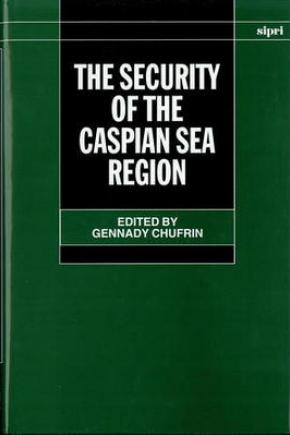The Security of the Caspian Sea Region
Over the past decade, the Caspian Sea region has risen from relative obscurity to considerable prominence in global affairs. Its vast natural resources, oil and natural gas among them, have attracted widespread international interest since the early 1990s. The international developments in the wake of the 11 September 2001 terrorist attack in the United States drew further attention to the domestic and foreign policies of the states of the Caspian region—Armenia, Azerbaijan, Georgia, Iran, Kazakhstan, Kyrgyzstan, Russia, Tajikistan, Turkmenistan and Uzbekistan—because of their close geographical proximity to Afghanistan.
It is generally accepted that the Caspian energy reserves are exceeded in size only by those of the Middle East and western Siberia. However, the access to these reserves is impeded by a wide variety of political, economic, legal and security factors. Among the many factors influencing the regional security environment are disputes among the littoral states over the Caspian Sea legal regime and the division of the Caspian Sea energy resources into national economic zones and sectors.
The stability of the region is challenged by the declining living standards of vast segments of local populations, growing inter-ethnic and inter-confessional tensions and conflicts, militant separatism, international terrorism, and the illegal trade in arms and drugs. The security of the region is also affected by the intensifying strategic competition among major outside powers over establishing their political and economic influence in regional affairs.
The Stockholm International Peace Research Institute has undertaken a large international project to study these aspects of Caspian regional security and to explore alternative scenarios of future developments in and around the Caspian region.
1. Introduction
Gennady Chufrin
Part I. The Caspian security environment
2. The new geopolitical situation in the Caspian region
Lena Jonson
3. Energy reserves, pipeline routes and the legal regime in the Caspian Sea
John Roberts
4. The Caspian Sea: threats to its biological resources and environmental security
Igor Zonn
5. Major trends in military expenditure and arms acquisitions by the states of the Caucasus region
Mark Eaton
Part II. National perspectives on security in the Caspian Sea region
6. Russia's national security interests in the Caspian region
Vitaly Naumkin
7. US policy towards the Caspian: can the wish-list be realized?
Amy Jaffe
8. Turkey's objectives in the Caspian region
Ali Karaosmanoglu
9. The evolving security role of Iran in the Caspian region
Mehrdad Mohsenin
10. Azerbaijan's strategic choice in the Caspian region
Sabit Bagirov
11. The choice of independent Georgia
Alexander Rondeli
12. Kazakhstan's security policy in the Caspian region
Konstantin Syroezhkin
13. Turkmenistan's quest for economic security
Najia Badykova
14. Turkmenistan and Central Asian regional security
Murad Esenov
Part III. The changing conflict dynamics in the Caspian Sea region
15. The conflict in Nagorno-Karabakh: its impact on security in the Caspian region
Dina Malysheva
16. The Georgian-Abkhazian conflict
Alexander Krylov
17. The glitter and poverty of Chechen Islam
Aleksei Malashenko
18. Radical Islam as a threat to the security of the Central Asian states: a view from Uzbekistan
Farkhad Khamraev
Part IV. Competition and co-operation in the Caspian Sea region
19. Caspian Sea region: towards an unstable future
Gennady Chufrin
Appendix. Chronology of defence and security-related declarations and agreements involving the countries of the Caspian region, 1991-2001
Mark Eaton
About the authors
Index

